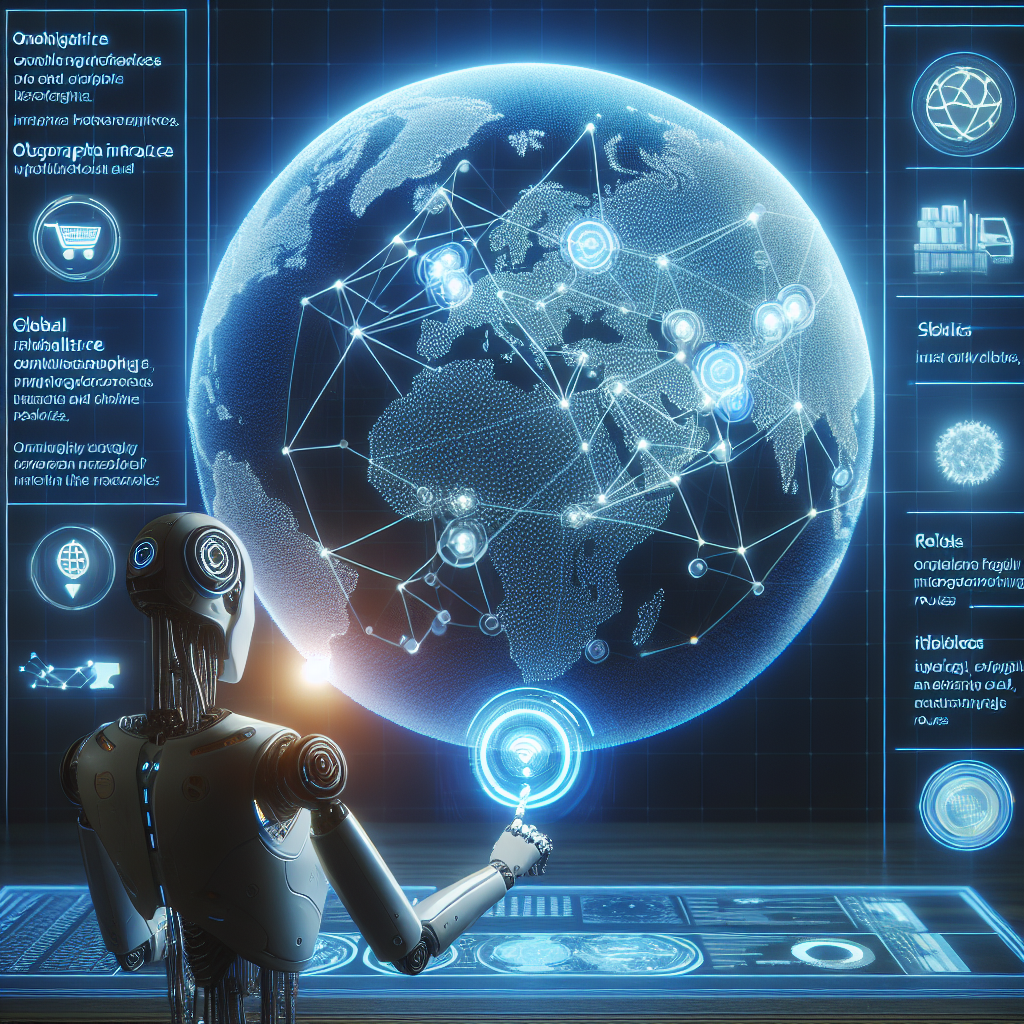The Future of AI-powered Supply Chain Resilience
In today’s fast-paced and globalized world, supply chain resilience has become a critical factor for businesses to survive and thrive. The ongoing pandemic, natural disasters, geopolitical tensions, and other unforeseen events have highlighted the importance of having a resilient supply chain that can adapt quickly to disruptions and continue to function smoothly.
AI-powered technologies have emerged as a key solution to enhance supply chain resilience. By leveraging artificial intelligence (AI) and machine learning algorithms, businesses can gain real-time visibility into their supply chain operations, predict potential disruptions, and automate decision-making processes to minimize the impact of disruptions.
The future of AI-powered supply chain resilience is promising, with advancements in technology enabling businesses to build more agile and adaptive supply chains. Here are some key trends that are shaping the future of AI-powered supply chain resilience:
1. Predictive Analytics: AI-powered predictive analytics can help businesses anticipate potential disruptions in the supply chain before they occur. By analyzing historical data, market trends, and external factors, AI algorithms can forecast demand, identify potential bottlenecks, and recommend proactive measures to mitigate risks.
2. Autonomous Supply Chain Management: AI-powered supply chain management systems can automate decision-making processes and optimize operations in real-time. By leveraging real-time data from IoT devices, sensors, and other sources, AI algorithms can make intelligent decisions on inventory management, routing, and procurement to ensure smooth operations and minimize disruptions.
3. Digital Twins: Digital twins are virtual replicas of physical assets, processes, or systems that can be used to simulate and optimize supply chain operations. By creating digital twins of their supply chain networks, businesses can run simulations, perform scenario analysis, and identify potential risks before they impact operations.
4. Blockchain Technology: Blockchain technology provides a secure and transparent platform for tracking and tracing products across the supply chain. By leveraging blockchain technology, businesses can enhance visibility, traceability, and trust in their supply chain operations, making it easier to identify and address disruptions.
5. Augmented Reality (AR) and Virtual Reality (VR): AR and VR technologies can be used to enhance supply chain operations by providing real-time insights, remote assistance, and training for workers. By using AR and VR devices, workers can access critical information, visualize data, and collaborate with colleagues in real-time, improving efficiency and reducing errors.
6. Collaborative Robots (Cobots): Collaborative robots, or cobots, can work alongside human workers in the supply chain to automate repetitive tasks, improve productivity, and enhance safety. By integrating AI algorithms into cobots, businesses can optimize workflows, reduce lead times, and streamline operations in the supply chain.
7. Sustainability and Circular Economy: AI-powered technologies can help businesses achieve sustainability goals and build a more resilient supply chain by optimizing resource utilization, reducing waste, and promoting a circular economy. By analyzing data on energy consumption, carbon emissions, and other environmental factors, businesses can identify opportunities to reduce their environmental footprint and enhance their social responsibility.
FAQs
Q: How can AI-powered technologies enhance supply chain resilience?
A: AI-powered technologies can enhance supply chain resilience by providing real-time visibility, predictive analytics, and autonomous decision-making capabilities. By leveraging AI algorithms, businesses can anticipate disruptions, optimize operations, and automate decision-making processes to minimize the impact of disruptions on their supply chain.
Q: What are the key benefits of using AI in supply chain management?
A: The key benefits of using AI in supply chain management include improved visibility, enhanced decision-making, optimized operations, reduced costs, and increased agility. By leveraging AI algorithms, businesses can gain insights into their supply chain operations, predict potential risks, and automate decision-making processes to improve efficiency and resilience.
Q: How can businesses implement AI-powered technologies in their supply chain?
A: Businesses can implement AI-powered technologies in their supply chain by investing in AI-powered software solutions, leveraging IoT devices and sensors, and integrating AI algorithms into existing systems. By partnering with technology providers, businesses can develop customized AI solutions that meet their specific needs and enhance their supply chain resilience.
Q: What are the challenges of implementing AI in the supply chain?
A: The challenges of implementing AI in the supply chain include data integration, talent shortage, cost of implementation, and resistance to change. Businesses need to overcome these challenges by investing in data infrastructure, training employees, and developing a clear roadmap for AI implementation to maximize the benefits of AI-powered technologies in their supply chain.
Q: What is the future outlook for AI-powered supply chain resilience?
A: The future outlook for AI-powered supply chain resilience is promising, with advancements in technology enabling businesses to build more agile and adaptive supply chains. By leveraging AI-powered technologies such as predictive analytics, autonomous supply chain management, digital twins, blockchain, AR/VR, and cobots, businesses can enhance their resilience to disruptions and improve their competitiveness in the global market.
In conclusion, the future of AI-powered supply chain resilience is bright, with advancements in technology enabling businesses to build more agile and adaptive supply chains. By leveraging AI-powered technologies such as predictive analytics, autonomous supply chain management, digital twins, blockchain, AR/VR, and cobots, businesses can enhance their resilience to disruptions and improve their competitiveness in the global market. As businesses continue to face increasing complexity and uncertainty in the global supply chain, AI-powered technologies will play a crucial role in helping them navigate challenges, minimize risks, and seize opportunities for growth and innovation.

